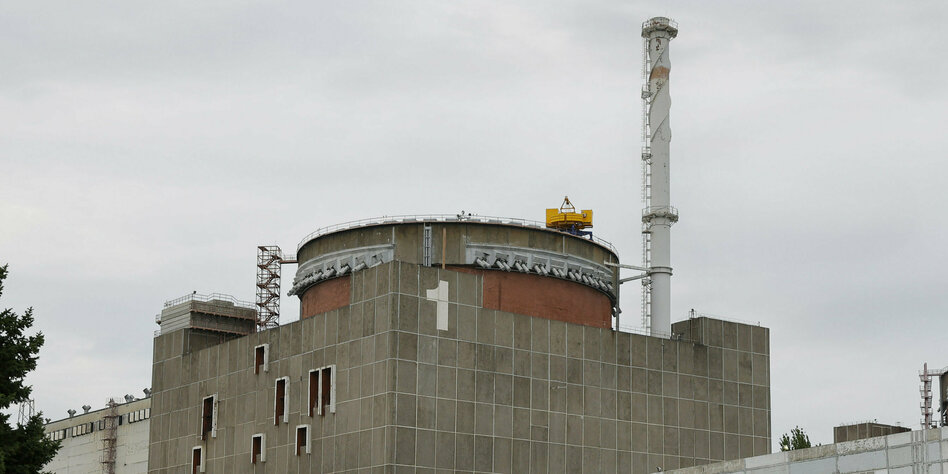Israeli Minister's Visit to Holy Site Stirs Controversy
A recent visit by Israel's far-right national security minister to Jerusalem's most sensitive holy site has stirred political and international tensions, putting Gaza cease-fire talks at risk.
Published July 19, 2024 - 00:07am

Image recovered from washingtontimes.com
Israel's far-right national security minister, Itamar Ben-Gvir, recently visited Jerusalem's most sensitive holy site, the Al-Aqsa Mosque compound, an act that has threatened to disrupt ongoing Gaza cease-fire talks. Ben-Gvir, an ultranationalist settler leader known for his controversial actions, said he made the visit to pray for the return of Israeli hostages but emphasized that it should be done without a reckless deal.
The visit, which occurred just days before Prime Minister Benjamin Netanyahu's scheduled trip to the United States to address Congress, inflamed tensions and brought to the forefront the contentious issues surrounding the Gaza conflict. Israeli negotiators had landed in Cairo the previous day to continue crucial discussions aimed at reaching a cease-fire in the nearly nine-month-old Israel-Hamas war.
Ben-Gvir's actions have historically been provocative, especially toward Palestinians who view the Al-Aqsa Mosque as a national and religious symbol. Jews refer to the site as the Temple Mount, considering it their holiest site, while Muslims call it Haram al-Sharif, revering it as the third holiest site in Islam after Mecca and Medina. Such visits have a history of inciting violence, given the compounded religious and nationalistic claims over the location.
In addition to his provocative visit, Ben-Gvir has a controversial personal history, having been convicted eight times for offenses including racism and supporting a terrorist organization. His radical views were so extreme that he was banned from compulsory military service as a teenager. As Israel's national security minister, Ben-Gvir oversees the country's police force and exerts significant influence on national security policies. He is a key coalition partner for Netanyahu and has leveraged his position to push for aggressive policies, including the continuation of military campaigns in Gaza despite widespread calls for a cease-fire.
The Gaza war, sparked by Hamas' attack on southern Israel on October 7, has resulted in a staggering loss of life, with over 38,600 people killed according to Gaza's Health Ministry. The conflict has created a humanitarian catastrophe in Gaza, displacing much of the territory's 2.3 million population and causing severe food shortages. Hamas' attack resulted in 1,200 Israeli deaths, mostly civilians, and saw about 250 hostages taken, of which approximately 120 remain in captivity.
Compounding the situation, Israel's parliament passed a resolution that rejects the establishment of a Palestinian state, further complicating the peace process and sending a strong message ahead of Netanyahu's U.S. visit. The resolution was largely symbolic but indicative of the broader political landscape within Israel that remains resistant to any form of Palestinian statehood.
International reaction has been swift and condemning. Saudi Arabia expressed its strongest condemnation of Ben-Gvir's visit, labeling it as an aggressive act that demonstrates Israel's hostile practices towards Islamic sacred sites and international norms. The Saudi Foreign Ministry also criticized the Israeli parliament's vote against the establishment of a Palestinian state, asserting that such actions perpetuate the Israel-Palestinian conflict and hinder progress towards a just and comprehensive peace.
The Saudi stance was echoed by the Palestinian Foreign Ministry, which described Ben-Gvir's visit as a provocative intrusion that endangers the fragile status quo concerning the Jerusalem compound. These continuous hostilities are pointed out to prevent any meaningful progress aimed at achieving peace and protecting the lives of innocent people in the region.
Israel has ramped up its military operations in recent weeks, particularly in central Gaza where many Palestinians have sought refuge from the ongoing conflict. Israeli airstrikes have resulted in significant casualties, including women and children, adding to the overwhelming humanitarian crisis. The military targets often include senior commanders from militant groups like Islamic Jihad, exacerbating an already volatile situation.
The broader context of Ben-Gvir's visit underlines not just the delicate nature of Jerusalem as a focal point of Israeli-Palestinian tensions but also highlights the complexities of the Israeli political landscape. Netanyahu's government, heavily influenced by hardliners like Ben-Gvir, is navigating a precarious path as it continues military campaigns while facing international pressure to negotiate peace deals.
The visit has implications beyond the immediate geopolitical strife, touching on national and international law, security dynamics, and the contentious issue of religious rights. Jerusalem, a city sacred to Jews, Muslims, and Christians, often becomes a flashpoint that tests the limits of diplomatic relations and international peace efforts.
As Netanyahu prepares for his U.S. visit, the international community watches closely, weighing the potential impacts of Israel's internal politics on broader Middle Eastern stability. Ben-Gvir's visit underscored the volatile nature of these issues, with both regional and international stakeholders engaged in a complex dance of diplomacy, military strategy, and religious sentiment.
In conclusion, the tensions surrounding Ben-Gvir's visit to the Al-Aqsa Mosque highlight the fragile nature of peace talks and the deep-seated historical and political conflicts that continue to shape the Israeli-Palestinian narrative. The path forward remains uncertain, with ongoing debates and actions likely to influence the region's stability and peace prospects.







